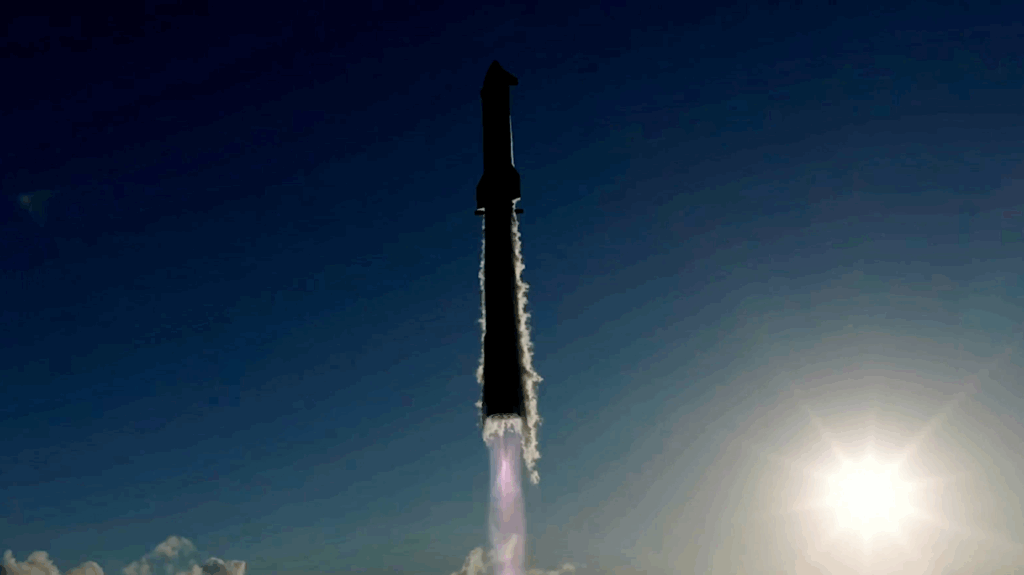When Smart People Say Stupid Things

Neil deGrasse Tyson: ‘The delusion is thinking that SpaceX is going to lead the space frontier’, The Verge
“The delusion is thinking that SpaceX is going to lead the space frontier. That’s just not going to happen, and it’s not going to happen for three really good reasons: One, it is very expensive. Two, it is very dangerous to do it first. Three, there is essentially no return on that investment that you’ve put in for having done it first. So if you’re going to bring in investors or venture capitalists and say, “Hey, I have an idea, I want to put the first humans on Mars.” They’ll ask, “How much will it cost?” You say, “A lot.” They’ll ask, “Is it dangerous?” You’ll say, “Yes, people will probably die.” They’ll ask, “What’s the return on investment?” and you’ll say “Probably nothing, initially.” It’s a five-minute meeting. Corporations need business models, and they need to satisfy shareholders, public or private.”
Neil deGrasse Tyson: Don’t leave space exploration up to private companies, BGR
“Private enterprise will never lead a space frontier,” Tyson told me in a phone interview. “In all the history of human conduct, it’s as clear to me as day follows night that private enterprise won’t do that, because it’s expensive. It’s dangerous. You have uncertainty and risks, because you’re dealing with things that haven’t been done before. That’s what it means to be on a frontier.”
 Keith’s note: Neil Tyson may be a smart astronomer type of guy but he doesn’t understand business – certainly not the model that is working for Elon Musk rather nicely thus far in SpaceX and elsewhere. Nor does Tyson have the resources that Musk has or understand why successful entities like Google have invested. Rather, Tyson’s tactic on human and commercial space flight thus far seems to be to whine and inject doubt whenever he can. And he is clearly unhappy and grumpy when people continue to succeed in commercial and/human spaceflight.
Keith’s note: Neil Tyson may be a smart astronomer type of guy but he doesn’t understand business – certainly not the model that is working for Elon Musk rather nicely thus far in SpaceX and elsewhere. Nor does Tyson have the resources that Musk has or understand why successful entities like Google have invested. Rather, Tyson’s tactic on human and commercial space flight thus far seems to be to whine and inject doubt whenever he can. And he is clearly unhappy and grumpy when people continue to succeed in commercial and/human spaceflight.









I could say the same thing about a lot of otherwise very intelligent planetary scientists and astronomers. NASA is their end-all/be-all of human spaceflight and continuously espouse the merits of SLS to no end. I don’t get it.
Actually, it really depends on what center you are at. Most astronomers scorn human spaceflight (well, they support it abstractly but scorn spending actual money on it) since it doesn’t do anything for them. Most haven’t heard of SLS. I would even go so far, based on long experience, that the majority of astronomers outside the nexus of the astrophysics centers (Baltimore, Huntsville, Boston, Pasadena) barely understand what NASA does. They just think of it as that agency that runs space telescopes for them and sends them grant money. Hell, even at my center and on my teams the more junior people have at best a fuzzy understanding of SMD or how the money flows.
Wow 🙁
Ya, that’s a little surprising, not the money part that makes perfect sense. The ignorance is surprising.
2017-2018 is going to be a bit shocking for them then maybe.
Thanks for your enlightening comment. The planetary scientists preaching SLS to me works at a university in one of those four cities you mentioned. Their argument concerned Europa Clipper. SLS reduces the transit time by 3 years, though I’m not sure what the utility of saving 3 years of transit time is. Less time exposed to radiation? Lower operating costs because you’re not babysitting your probe during transit as long?
“The planetary scientists preaching SLS to me works at a university in one of those four cities you mentioned. Their argument concerned Europa Clipper.”
Which almost certainly means Baltimore (APL) or Pasadena (JPL).
Radiation isn’t a significant advantage for launching the Europa mission on SLS. Almost all of the radiation does comes from the Europa encounters themselves.
Operations costs during cruise are the most commonly cited benefit. There are secondary benefits. Avoiding loss of corporate knowledge, for example. That includes things like the loss of data from one of Galileo’s instruments the first Ganymede encounter. A shorter mission also means lower requirements on reliability and component lifetime. Even apparently minor things, like porting custom software to new platforms because the computers available at launch are no longer supported at end of mission, can add up.
My main concerns about SLS for planetary missions are (1) cost, which is not viable if the planetary side of NASA has to pay for the full, as opposed to the incremental, cost and (2) schedule risk, which I consider high, and (3) reliability risk, because I don’t like flying on the second, or even third, flight of a completely new vehicle. Flying on a free, first launch is what caused the loss of the Cluster mission (the currently operating one is the reflight, Cluster 2.)
You don’t get it? 70 metric tons, then 130, then…more. I get it. What the NewSpace fan boys don’t get is that the fuel depot miracle has never been anything but an excuse to cancel those evil old space Super Heavy Lift Vehicles that the billionaire hobbyists cannot afford.
I think cost per unit mass of payload to LEO is the most important metric for assessing space launch systems, not payload (though I concede there’s a lower limit to useful payload).
The planetary scientist I mentioned was promoting SLS in the context of the Europa Clipper mission. Transit time when launched via SLS is half the transit time when launched by an Atlas V. I don’t understand is the utility of shaving 3 years off the transit time (genuine naivete, not being snarky).
I get SLS’s payload capacity, but its cost for that capacity is obscene.
Falcon 9 payload capacity is about 13 metric tons. Falcon Heavy will be about 53 metric tons and should launch years before SLS. I don’t expect Musk will stop with Falcon Heavy, but SpaceX will need to finish Raptor development first.
What is the business model for going to Mars? It sounds more like Musk is taking a gradualist approach, building up the capabilities for a Mars mission on a commercial basis – but the mission itself would still essentially have to be done on the government dime or on a non-profit basis.
The ‘business case’– a term thrown around by many, I suspect, who have no idea about business (TheBrett being excepted, of course:-) ) is pretty simple: use the profits from a different business to have a bit of fun. It’s what Musk is doing with Tesla and SpaceX with funds from PayPal, and it’s what Mr. Bezos is doing with funds from Amazon.
This is truly a different business case.
That’s what I think he’ll do as well, assuming he keeps having successes in rocketry. If he develops the technology in a profitable fashion, then he could theoretically finance a Mars expedition out of his personal pocket (or license the technology to NASA to do it) down the line.
It’s what I would do in his position, if things worked out.
Me too. Just finished Bova’s “Mars, Inc” in which a group of billionaires finance such a mission. Not a terrific book but a cool idea.
I’m reminded of a colleague’s system for playing roulette. It’s guaranteed to lose money, but in a way that looks successful. Lots of small losses which no one notices, combined with occasional, spectacular wins. Combined with the right manner, it is highly likely to attract attention. Using this approach, he got to be the star of the show for about four hours at Monte Carlo, at the cost of $250 dollars. He felt that was an excellent deal.
So, in terms of a business plan for Mars, I don’t think making money is necessary. The people investing need to get something they value, and value enough to be worth the investment. But the return does not have to be financial.
His desire is to get the price low enough that individuals will self-fund their migration. (As most migrants do.)
Early exploration missions might include government funded researchers from various countries. Because why not. If it’s there and it’s cheaper that anything else; and Musk is happy to sell services to governments to pay for development. Everyone wins.
But launching such government flag’n’footprint missions is clearly not his end-goal.
I think it depends on the meaning of “frontier”. I think it will be awhile before a commercial company is doing significant BEO as opposed to LEO. It’s just a matter of survival – the money is around the Earth, whereas NASA can function off public largesse.
I thought most commercial Space money was in Geosynchronous space???
Not Low earth orbit?
Yes. Only money in LEO is NASA ferry rides.
But there are resources in asteroids, in situ processing, etc. That’s the true future of human space flight. Nowhere near a gravity well.
Not true, earth observation is mostly a LEO market and is currently the fastest growing sector – although it’s still tiny compared to GEO transponders.
Guess I was taking a (much) longer view.
Also nowhere in either the immediate or intermediate future either.
Actually, it’s about 50-50.
You’re correct, I was loose in my terminology. I work on deep space science missions, and in my mind space is roughly divided into “inside lunar orbit” and “outside”.
So then you must be for informing the presidential candidates about a “commercial” Lunar COTS Program, so we can build an affordable sustainable highway to BEO/moon. building depots with falcon Heavies instead of SLS. We need a Plan in place that supports cheaper spaceflight.
Tyson may not understand business, but most of the New Space fanboys don’t understand space either. Tyson is spot on in his analysis.
I agree. NewSpace is going nowhere except LEO. Forever. The SLS is the only hope for any BEO missions for decades to come.
“SLS is the only hope for any BEO missions for decades to come.”
Does Lissajous count as BEO? SpaceX launched DSCOVR (the so-called “GoreSat”) to L1 earlier this year.
I’m fairly sure he means human spaceflight beyond Earth orbit. A Falcon 9 is fine for unmanned missions to Mars or Venus, I’ve got some ideas for a Discovery-level Jupiter mission which could use a Falcon 9 (actually, it would be marginal in terms of cost without one.)
I think Tyson was talking about a totally private Mars effort. Right now, besides NASA, there is no customer for sending people to Mars. SpaceX’s current business model relies on markets that have customers (commercial sat companies, the military, NASA).
Google isn’t investing in SpaceX because they are trying to reach Mars. They are investing because of LEO business. Tyson’s point is that at the moment commercial companies cannot lead because the business model doesn’t work.
I say we give the “Man on Mars” a rest. First demonstrate LEO is a profitable business besides launching govt payloads (c’mon you guys it still ain’t easy and expensive unless you can throw away a few 10 million here and there). There are commercial satellites though I think space tourism will not be a profitable business until LEO access is as frequent as airline travel (even some of them are operating at thin margins). My big question is can these New Space ventures i.e. SpaceX and Blue Origin be able to scale up with many flights per month instead of one every other month or so?
I was looking at the SpaceX manifest the other day and wondering the same thing as I counted planned 2016 flights. Gonna be a busy year.
I’m totally pulling for SpaceX, but I remember shuttle launch schedules from decades ago and I’ve learned not to count your chickens until they’ve ignited.
Ignited chickens! Thank you very much for that mental image 🙂
It is still a wave for new-money billionaires, true. But notice how money from GSO launches are feeding development of LEO growth. If the price of launch drops again so that certain Interplanetary activities become profiable, you’ll see millionaires and old money billionaires get in on it.
If news sites like The Verge had a comments section we could educate them.
You’re right, Keith, Neil does not understand business. He also, apparently, doesn’t understand NASA data sharing or how Space Act Agreement contracts work. Emergencies like The Martian will never happen in real life because by the time NASA astronauts get to Mars there will already be colonists there on planet able to rescue them, using NASA-research derived technologies.
You understand SAAs and NASA datasharing better than I do. Am I right?
Before I say what I am about to say I think very highly of Dr. Tyson but he’s missed some major happenstances in his example / argument with the iPhone which at least in my mind makes his example unfortunately moot, if not completely counterproductive in making his point.
Yes Apple did not invent the touch screen…
And they did not invent GPS…
And yes they did put together a service and a devise to bring all these technologies together for the consumer…
What Dr. Tyson has completely missed is the markets that were created because of the IPhone… Apple gave rise to competition…Android came into existence… Apps and devises… Bluetooth, and interfaces! Whole new markets were created as a result… not to mention this drove down the cost of miniaturization and opened up so much more than I have time to go into…
Also, here’s the porverbial 800 pound Gorillia in the Room!!!
Gold at the time of this post is at about $1057.00 a troy ounce or $15,415 a Pound, Not a Troy Pound but a pound equivalent to a pound of mass to orbit or LEO… and yes this is only part way..
At its 2013 launch price and at full LEO payload capacity, the Falcon 9 v1.1 cost $1,864 per pound ($4,109/kg).
From wikipedia:
https://en.wikipedia.org/wi…
Can anyone make the connection
here?
Do you really think that the mining companies and big business are not looking at the margins?
And Reusability? It’s already starting to happen!
Price to LEO then?
Think California Gold Rush!
Interesting they Tyson’s “three really good reasons” would equally apply to early aviation…
1. Yes, it was very very expensive to design and build those newfangled flying contraptions.
2. Yes, it was very dangerous to actual fly those things (lots of pilots and even passengers died).
3. And yes, there was next-to-no return on investment — not immediately… it took a while for folks like William Boeing, Alan Lockheed, and Glenn Martin to actually break even (… and then forged ahead to make aero-empires).
By Neil’s reckoning, those fools should have stuck with earth-bound transportation!
Oooh, wait… What would Dr. NdGT say about those awful impractical, expensive, dangerous, not immediately profitable “horseless carriages?” Or how about that nonsense about expensive/dangerous/not-immediately-profitable steam-powered ships (sailing ain’t broken, it’s “free”– and now even “green”)? Or sailing around the world? Ha! Magellan should have stayed close to shore and avoid bothering the King about investing in such an expensive, dangerous voyage (that wouldn’t instantly produce a big quarterly dividend!)